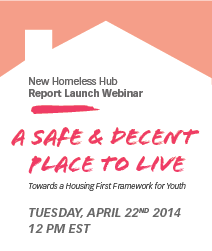The Mental Health Commission of Canada just released the Final Report following their At Home/Chez Soi project. This multi-year demonstration project has shown some fabulous results and answers many of the questions we’ve had about Housing First.
Funded with $110 million by the Government of Canada, this research demonstration project encompassed four years and five cities. Each city also had a specific focus or sub-population. They were:
- Vancouver (people also experiencing problematic substance use),
- Winnipeg (urban Aboriginal population),
- Toronto (ethno-racialized populations, including new immigrants who do not speak English),
- Montréal (includes a vocational study),
- Moncton (services in small communities).
As the “Best Practice” in Housing First (HF), the report’s “Key Findings” section answers the question “Does Housing First Work?” with a resounding “YES!” We’re reproducing the key findings here with links to some other research that supports them. Be sure to read the full MHCC report for all the important details.
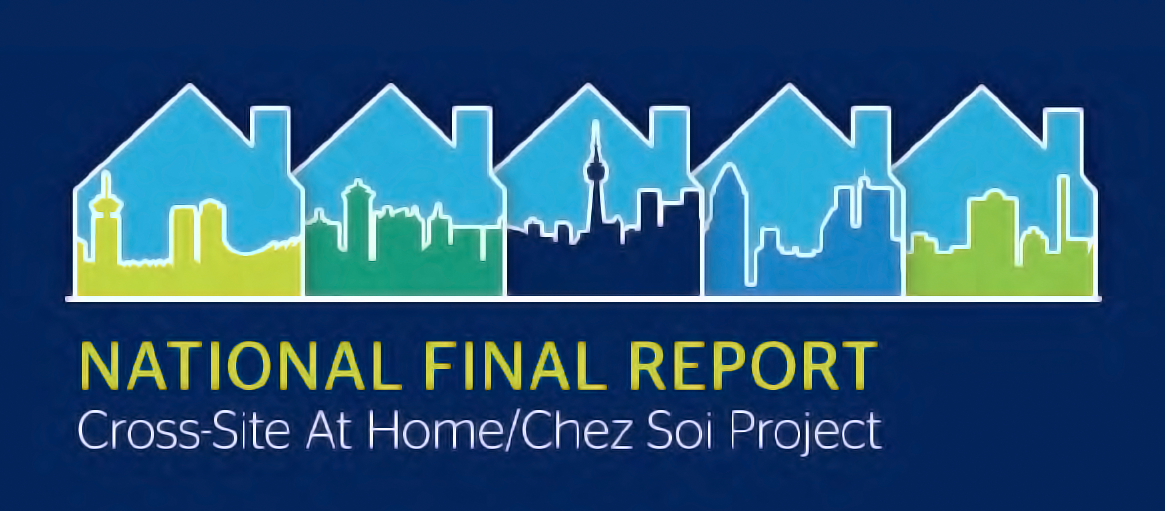
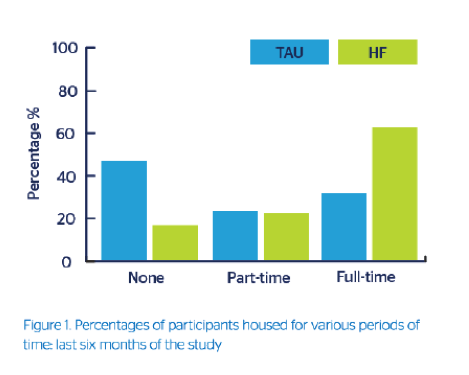 “Housing First can be effectively implemented in Canadian cities of different size and different ethnoracial and cultural composition. Across all the five cities, HF programs were operated in a manner that was consistent with the HF model standards, but were tailored to best fit the local contexts. The HF approach was successfully adapted to serve Aboriginal, immigrant, and other ethnoracial groups in a culturally sensitive manner. (Chapter 2)”
“Housing First can be effectively implemented in Canadian cities of different size and different ethnoracial and cultural composition. Across all the five cities, HF programs were operated in a manner that was consistent with the HF model standards, but were tailored to best fit the local contexts. The HF approach was successfully adapted to serve Aboriginal, immigrant, and other ethnoracial groups in a culturally sensitive manner. (Chapter 2)”
- “Housing First rapidly ends homelessness. Across all cities, HF participants in At Home/Chez Soi rapidly obtained housing and retained their housing at a much higher rate than the treatment as usual (TAU) group. (Chapter 4)”
- “Housing First is a sound investment. The economic analysis found some cost savings and cost offsets. (Chapter 5)”
- “It is Housing First, but not Housing Only. The support and treatment services offered by the HF programs contributed to appropriate shifts away from many types of crisis, acute, and institutional services towards more consistent community and outreach-based services. This shift supports and encourages more appropriate use of health and shelter services. (Chapter 5)”
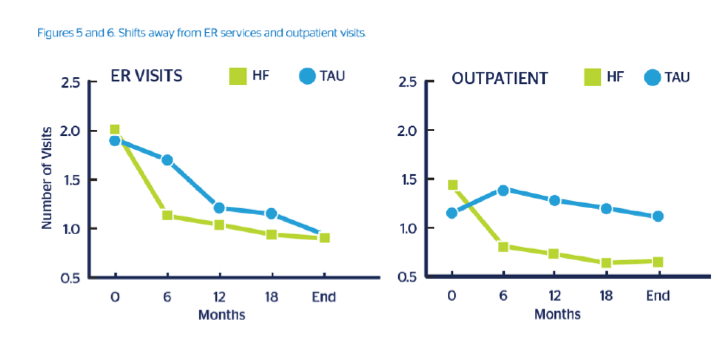 “Having a place to live and the right supports can lead to other positive outcomes above and beyond those provided by existing services. HF participants also demonstrated somewhat better quality of life and community functioning outcomes than those receiving existing housing and health services in each city. (Chapter 6)”
“Having a place to live and the right supports can lead to other positive outcomes above and beyond those provided by existing services. HF participants also demonstrated somewhat better quality of life and community functioning outcomes than those receiving existing housing and health services in each city. (Chapter 6)”
- “There are many ways in which Housing First can change lives.
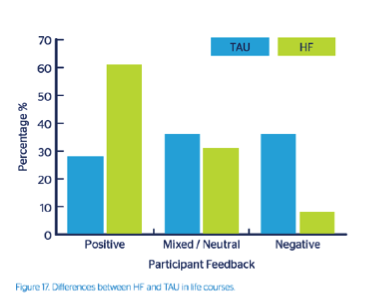 The HF groups, on average, improved more and described fewer negative experiences that TAU (Chapter 6). Understanding the reasons for differences of this kind will help to tailor future approaches, including understanding the small group for whom HF did not result in stable housing. (Chapter 4)”
The HF groups, on average, improved more and described fewer negative experiences that TAU (Chapter 6). Understanding the reasons for differences of this kind will help to tailor future approaches, including understanding the small group for whom HF did not result in stable housing. (Chapter 4)”
- “Getting Housing First right is essential to optimizing outcomes. Housing stability, quality of life, and community functioning outcomes were all more positive for programs that operated most closely to Pathways HF standards. (Chapter 6)”
Overall, it was found that Housing First is good for a variety of populations, in a variety of places and can be used in programs of different sizes. Most importantly, this report provides detailed evidence that Housing First works.
For more on Housing First check out the Homeless Hub’s book “Housing First in Canada: Supporting Communities to End Homelessness”. Also, on April 22nd we will be launching our newest report “A Safe and Decent Place to Live: Towards a Housing First Framework for Youth” which examines how communities can implement a youth-specific HF approach. Author, Dr. Stephen Gaetz will introduce the report in a free webinar on April 22nd at 12PM (EDT). Everyone is welcome to participate. Sign up for the event.
Goering, P., Veldhuizen, S., Watson, A., Adair, C., Kopp, B., Latimer, E., Nelson, G., MacNaughton, E., Streiner, D., Aubry, T. (2014). National At Home/Chez Soi Final Report. Calgary, AB: Mental Health Commission of Canada. Retrieved from http://www.mentalhealthcommission.ca
This post is part of our Friday "Ask the Hub" blog series. Have a homeless-related question you want answered? E-mail us at thehub@edu.yorku.ca and we will provide a research-based answer.


